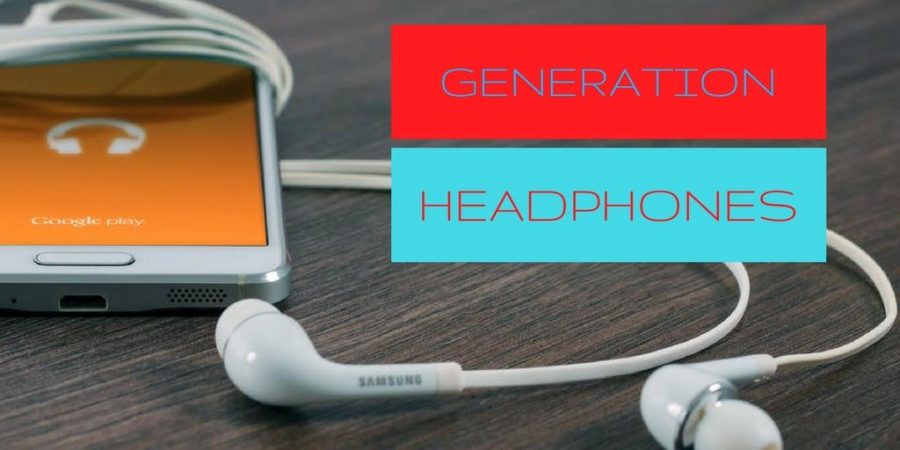When you walk through the hallways you see at least ¾ of the people with ear buds in, their music blasting while staring blankly and apathetically ahead. It is difficult for many adults to understand students’ attachment to headphones. But being a student myself, I am greatly tethered to my own pair. Our headphones are a great stress reliever. Before taking a hard test many students are seen sitting calmly listening to their favorite song, or a relaxing tune to even them out before the stress hits.
to my own pair. Our headphones are a great stress reliever. Before taking a hard test many students are seen sitting calmly listening to their favorite song, or a relaxing tune to even them out before the stress hits.
It has been proven that listening to soothing music helps students study. The background music increases focus on tasks while also improving endurance. Music also improves mood which is generally an ancillary benefit when people are trying to focus.
Students run back and forth between classes trying to understand difficult topics while also trying to keep a hold of their mental health. Listening to your favorite artist can help relieve anxiety and or stress that is caused by classes. Listening to music is a great way to escape the stress of everyday life, just like reading a book.
Headphones are small and easily accessible, making them a must-have for any high school student. A student’s favorite music is an easy way for him or her to clear their head and focus on the challenges ahead.
“Musical activity throughout life may serve as a challenging cognitive exercise, making your brain fitter and more capable of accommodating the challenges of aging,” articulated lead researcher Brenda Hanna-Pladdy said in a recent news release.
Music helps our brains stay strong throughout life even as we get older. This is imperative because it shows that listening to and understanding music in your youth can have a great effect on us even in the future.
According to Dr. Luciano Bernardi, an Associate Professor of internal medicine at the University of Pavia, Italy, music has an effect on your vitals as well.
“The idea that music has an effect on heart rate and blood pressure has existed for some time. In 1918, Hyde and Scalapino reported that minor tones increased pulse rate and lowered blood pressure.”
In its simplest form, listening to music is good for you. Music can help your heart and blood stay at healthy levels. But this isn’t new information because ancient civilizations used music for centuries before the songs we listen to today arose. People used to apply music to “heal” injured people or would use music to dance and create a more diverse culture.
Since music is healthy for your heart and blood pressure it is understandable that it also aids sleep patterns. The more you listen to music, the easier it is to sleep; it decreases stress and anxiety in order to create a more calm persona.
Jacob Jolij of the Psychology Department of the University of Groningen in the Netherlands weighed in on the issue as well.
“Seeing things that are not there is the result of top-down processes in the brain. Conscious perception is largely based on these top-down processes: your brain continuously compares the information that comes in through your eyes with what it expects on the basis of what you know about the world. The final result of this comparison process is what we eventually experience as reality. Our research results suggest that the brain builds up expectations not just on the basis of experience but on your mood as well.”
Jolij experimented with different music styles. In fact, when playing sad songs, the test subject felt sad compared to when listening to upbeat music. Not only is music good for us, but it can affect our emotions on a day to day basis. This is critical because if you need to be doing something quickly or slowly, the music that you listen to while partaking in that activity can greatly benefit your performance.
Scientists from Drexel University researched music with cancer patients and found that those who listened to music experienced a drop in anxious behavior. Moreover, the patients had healthier blood pressure levels and much better moods/emotions as music became the impetus for their emotional healing. Music, as much as anything else, has fortuitous effects on the psyche, mood, and overall happiness in someone’s life.
Music has a resounding effect on everyone’s day-to-day life. Don’t get mad if your friend is doing homework with their headphones in when you’re trying to talk to them. They are simply taking the extra step to focus and trying not to stress out.








